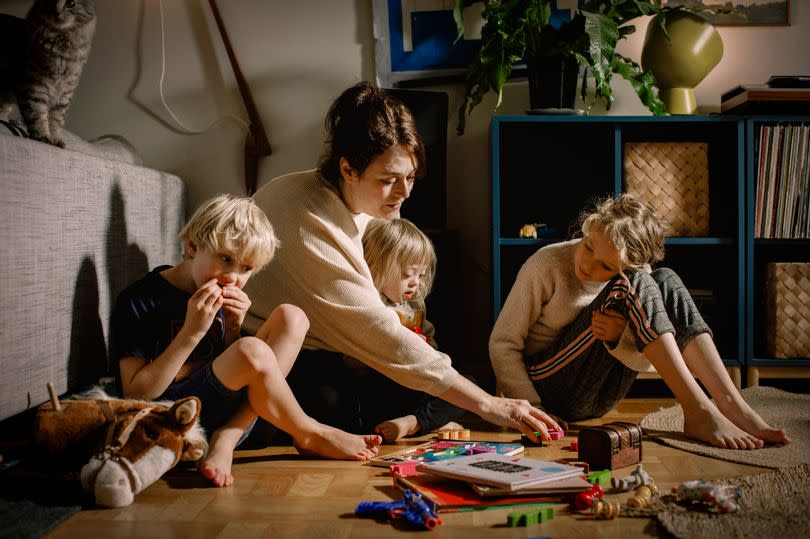DWP benefits warning as two-child cap to hit extra 670,000 children

The Institute for Fiscal Studies has issued a warning that the number of children impacted by the two-child benefit cap will increase by a third over the next five years. The restriction currently affects two million children, with more affected each year as it applies to those born after 5 April 2017.
According to the think tank, an additional 250,000 children will be affected next year, escalating to 670,000 before the end of the next parliament if the policy is not revised. Neither Labour nor the Conservatives have pledged to abolish the Tory policy in their General Election manifestos, a policy which has been widely blamed for perpetuating child poverty.
Introduced in 2017, the "cruel" cap, as campaigners describe it, limits Child Tax Credit and Universal Credit, administered by the Department for Work and Pensions (DWP), to the first two children in most households. Once fully implemented, it will affect one in five children, increasing to 38% of those in the poorest fifth of households, according to IFS research.
READ MORE Widow issues appeal as Yorkshire miner dies after short health battle
The research also revealed that 43% of children in households with at least one person of Bangladeshi or Pakistani origin will be affected. On average, affected households will lose £4,300 per year, equating to 10% of their income, as per the analysis.
The cap's introduction has significantly impacted the poverty rates among large families, with the share of children in relative poverty jumping from 35% in 2014-15 to 46% in 2022-23, according to the IFS. This increase comes at a time when poverty rates for smaller families have decreased, reports Wales Online.
The IFS highlighted that lifting the two-child limit would cost the government approximately £3.4 billion annually, which is on par with the expected cost of freezing fuel duties over the next parliament.
IFS research economist Eduin Latimer remarked: "The two-child limit is one of the most significant welfare cuts since 2010 and, unlike many of those cuts, it becomes more important each year as it is rolled out to more families."
Mubin Haq, CEO of the abrdn Financial Fairness Trust, which sponsored the study, commented: "The limit has been a significant contributor to child poverty amongst large families during a period when poverty for families with one or two children fell. If the next government is serious about tackling child poverty, it will need to review the two-child limit."
He also pointed out the inherent bias of the policy, stating: "There is an inherent unfairness in the policy as it affects only those children born after April 5, 2017. The majority of families affected are in work or have caring responsibilities for disabled relatives or young children."
Alison Garnham, Chief Executive of Child Poverty Action Group, condemned the current situation, saying: "Child poverty in the UK is a national disgrace and the biggest driver of it is the two-child limit. It makes life worse for kids up and down the country and limits their future chances."
"Children affected by child poverty don't have a voice in this election but politicians from all parties have a responsibility to them to show leadership. Any government serious about making things better for the next generation will have to scrap the two-child limit, and do so quickly."
Paul Carberry, chief executive at Action for Children, stated: "Here is yet more shocking evidence of the huge scale of the damage being caused to children and families by the cruel two-child limit, which is well known to push families into poverty and, which if scrapped, would lift 300,000 children out of hardship."
"The election presents an opportunity for bold and ambitious action to be taken and for all political parties to commit to ending child poverty once and for all. That must include an increase to the child element of Universal Credit and scrapping the two-child limit and benefit cap."

 Yahoo News
Yahoo News 
